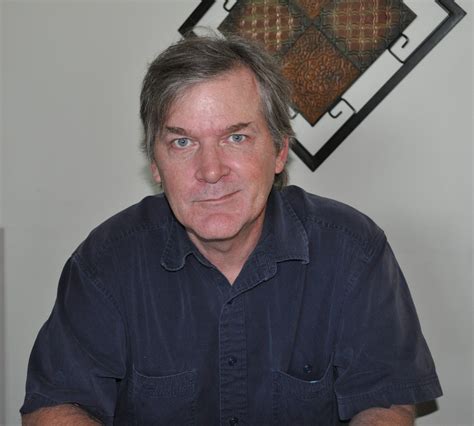A Quote by George Singleton
There's a ton of truth in Flannery O'Connor's notion that "Anybody who has survived his childhood has enough information about life to last him the rest of his days."
Related Quotes
We hear a great deal of lamentation these days about writers having all taken themselves to the colleges and universities where they live decorously instead of going out and getting firsthand information about life. The fact is that anybody who has survived his childhood has enough information about life to last him the rest of his days. If you can't make something out of a little experience, you probably won't be able to make it out of a lot. The writer's business is to contemplate experience, not to be merged in it.
I don't know where to start," one [writing student] will wail. Start with your childhood, I tell them. Plug your nose and jump in, and write down all your memories as truthfully as you can. Flannery O' Connor said that anyone who has survived childhood has enough material to write for the rest of his or her life. Maybe your childhood was grim and horrible, but grim and horrible is Okay if it is well done. Don't worry about doing it well yet, though. Just get it down.
Roland glares at Connor and Connor glares back. Then he says what he always says at moments like this. "Nice socks." Although Roland doesn't look down right away, it derails him just enough for him to back off. He doesn't check to see if his socks match until he thinks Connor isn't looking. And the moment he does, Connor snickers. Small victories are better than none.
A distinguished man should be as particular about his last words as he is about his last breath. He should write them out on a slip of paper and take the judgment of his friends on them. He should never leave such a thing to the last hour of his life, and trust to an intellectual spurt at the last moment to enable him to say something smart with his latest gasp and launch into eternity with grandeur.
I like [John Cardinal O'Connor] a lot. He - I started a - to know him - when I asked William Shawn at The New Yorker, `Sh - can I do a profile of Cardinal O'Connor?' He said, `All right. Find out what he's like.' So I went to his office, and I heard somebody - and it turned out to be O'Connor - yelling outside, and I've never heard him since raise his voice.
You are told a lot about your education, but some beautiful, sacred memory, preserved since childhood, is perhaps the best education of all. If a man carries many such memories into life with him, he is saved for the rest of his days. And even if only one good memory is left in our hearts, it may also be the instrument of our salvation one day.
When Private Bradley [aka Chelsea] Manning put his conscience ahead of his personal well-being by allegedly releasing important information to the world's public via WikiLeaks, he was put into an inhumane solitary confinement and is now facing charges that carry the possibility of him spending the rest of his life in prison.
Honesty is not the same as truth. That is the obstacle of the notion of relative truths. I would like to put my trust in the lunatic. He is the one least concerned of what I think of him, the mark of an honest man. I can always depend on him to be completely honest in what he thinks and feels, about anything, no matter the consequences laid before him, however with no course of rationale, I cannot necessarily take his word for even the well-being of him in his own reality.
What did you say to the messanger mi'lady? Do you remember the exact words of your last proposal?" "I probably said, "Will you marry me?" Connor smiled. He pulled her toward him, lowered his head and kissed her just long enough to stun her. He lifted his head then, looked into her eyes, and finally spoke to her. "Yes Brenna. I will marry you.
Lil Wayne, I ain't mad at him man, he did his thing, he stepped up his lyrical game, he the most improved rapper out of anybody. I've seen him from childhood status to what he's doing right now. He stepped up his rap game, so he deserves the success he had. And no one else was even doing near what he was doing, so I applaud him too.

































